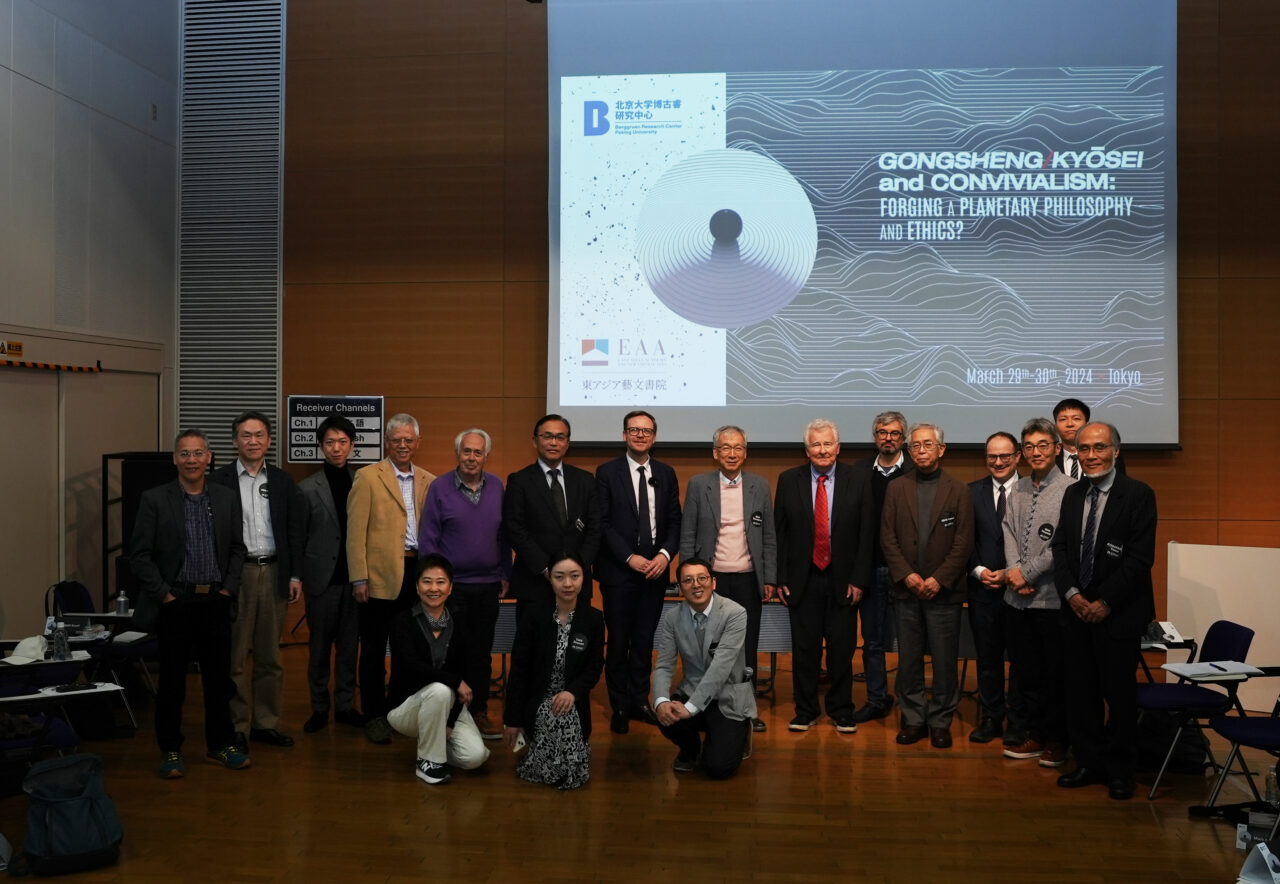On Friday, March 29th and Saturday, March 30th, 2024, the International Symposium on “Gongsheng/Kyōsei and Convivialism: Forging a Planetary Philosophy and Ethics” took place at the Komaba Campus of the University of Tokyo. Organized by the Berggruen China Center and co-organized by East Asian Academy for New Liberal Arts, the University of Tokyo (EAA), the symposium was conducted in three languages (English, Chinese, and Japanese), with simultaneous interpretation. Delving into the theme of “Gongsheng/Kyōsei and Convivialism,” the event explored various perspectives on the subject.
On the first day, Friday, March 29th, at 9:00 a.m., Prof. MAFUNE Fumitaka, Dean of the Graduate School of Arts and Sciences at the University of Tokyo, delivered the opening remarks. This was followed by an introduction to the project’s background by Ms. SONG Bing, Director of the Berggruen China Center. Subsequently, Prof. NAKAJIMA Takahiro from the University of Tokyo presented a keynote speech on “Our Kyōsei: What Personal Works Mean.”
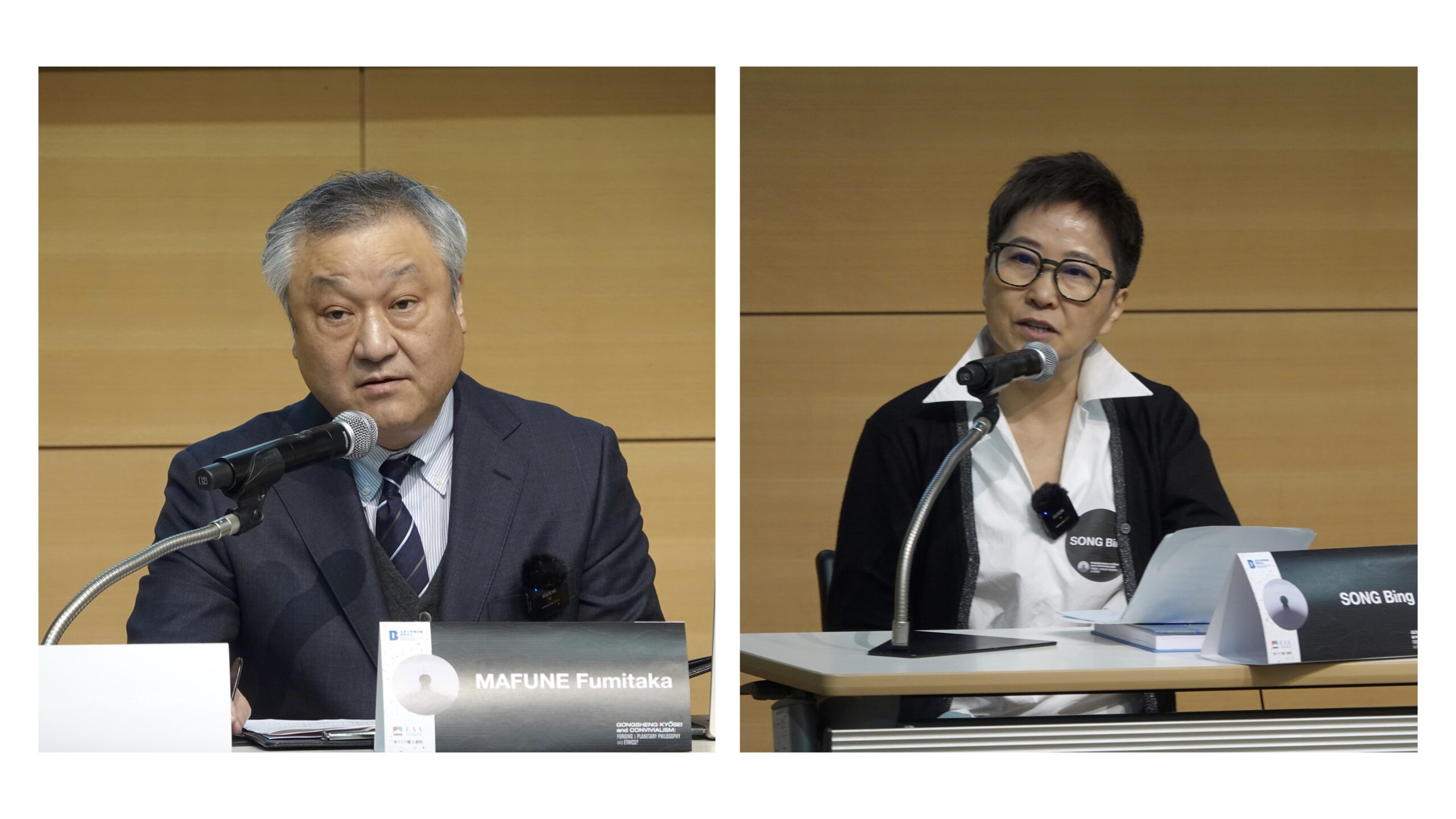 Left: Prof. MAFUNE Fumitaka Right: Ms. SONG Bing
Left: Prof. MAFUNE Fumitaka Right: Ms. SONG Bing
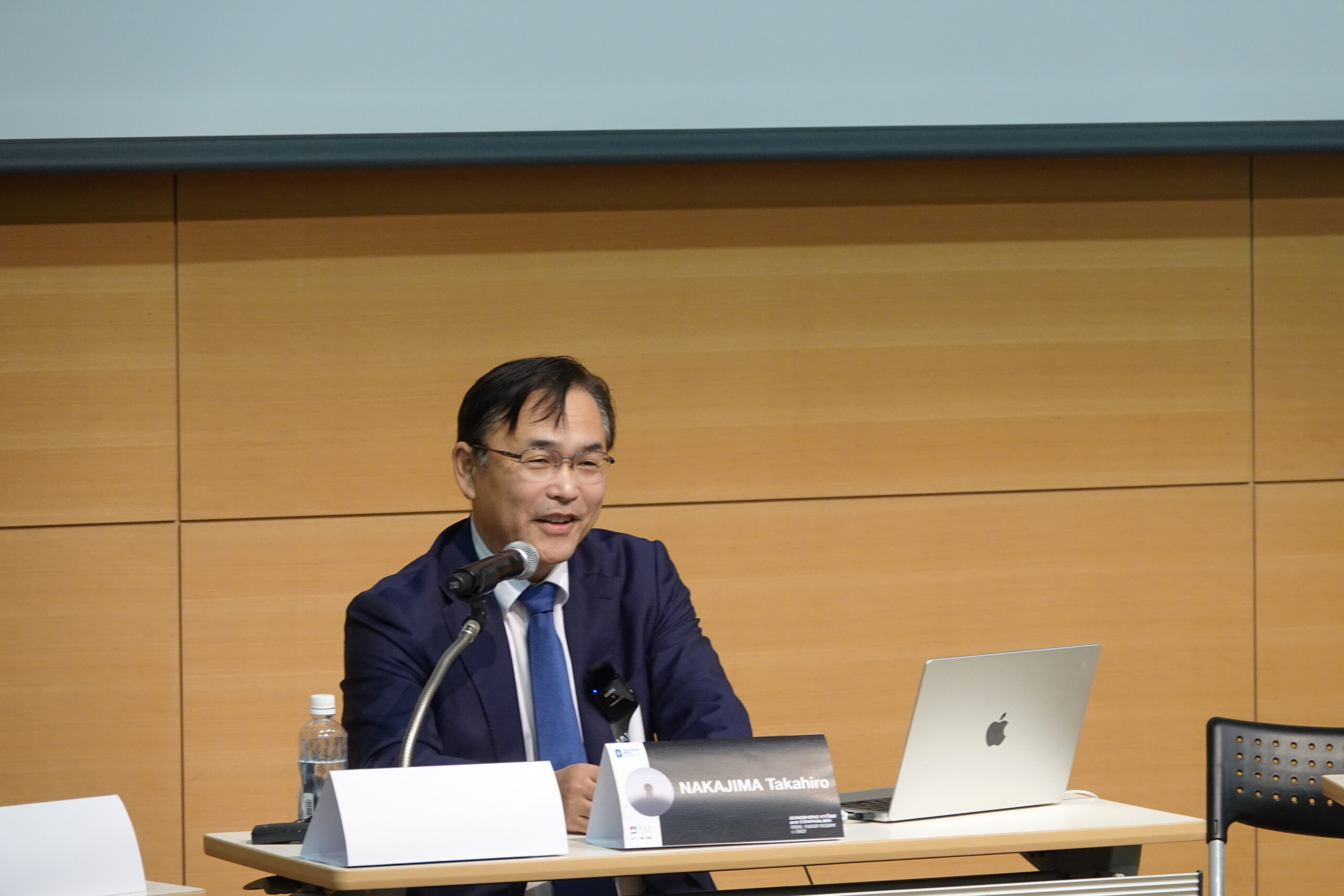 Prof. NAKAJIMA Takahiro
Prof. NAKAJIMA Takahiro
The first panel discussion, titled “Exploring the Philosophical Foundations of Gongsheng/Kyōsei and Convivialism,” was moderated by Prof. ISHII Tsuyoshi, Director of EAA. Prof. ISHII Kosei, Professor Emeritus at Komazawa University, presented his paper on “Understanding the Limits of Symbiosis: MIYAZAWA Kenji ‘s Theory of Symbiosis as a Clue.” Following that, Prof. GONG Jun from Sun Yat-sen University delivered a presentation titled “The Concept of Gongsheng in Daoist Philosophy: Examples from Laozi and Zhuangzi.” Prof. Frank ADLOFF from the University of Hamburg presented his work on “Overcoming Naturalism: Conviviality and Symbiosis.” The speakers engaged in discussions revolving around MIYAZAWA Kenji’s idea of symbiosis, the perspectives on symbiosis in the philosophies of Laozi and Zhuangzi, and the symbiotic relationship between humans and non-humans.
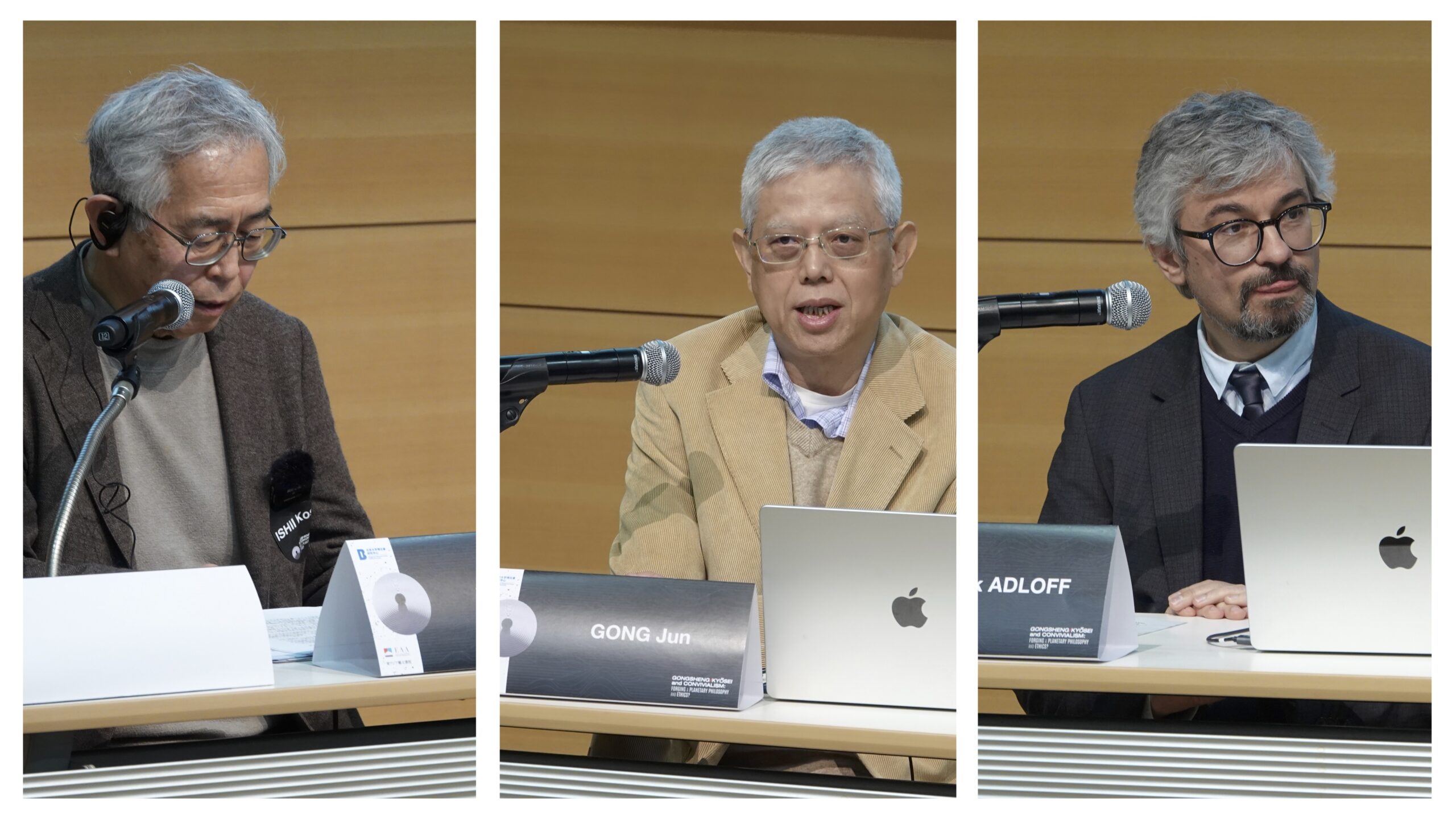
From left: Prof. ISHII Kosei, Prof. GONG Jun, Prof. Frank ADLOFF
After a lunch break, the second keynote speech, titled “Convivialism (and Symbiosis) in the Face of Struggles for Recognition,” was given by Prof. Alain CAILLÉ from Paris-Ouest-Nanterre University.
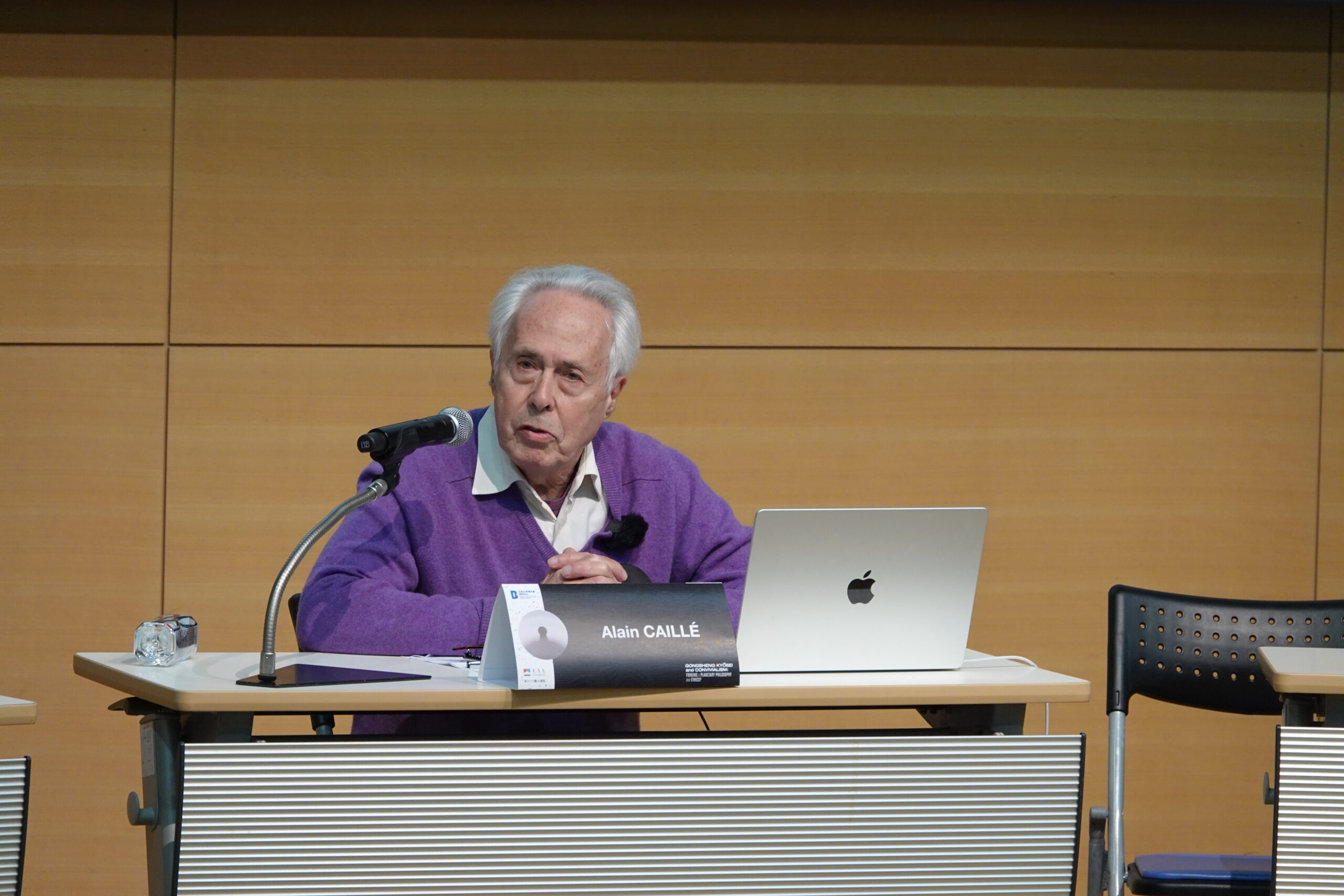 Prof. Alain CAILLÉ
Prof. Alain CAILLÉ
The second panel discussion on “Disasters and Revivals,” was moderated by Prof. GONG Jun. Prof. LAI Shi-San from National Sun Yat-sen University delivered a presentation titled “Daoist Technological Critique and Gongsheng Transformation: From ‘Dominating Over Things by the Self’ (以我宰物) to ‘Matching Tian with Tian’ (以天合天).” Following that, Prof. BAIK Youngseo from Yonsei University presented his paper on “Co-Becoming Humanities on the Way to Alternative Civilization(s): Navigating the Age of the Great Transition through Knowledge Restructuring.” Prof. ISHII Tsuyoshi spoke on “The Logos for Human Co-Becoming—Toward the ‘Post-2050’ Era,” and Prof. HOSHINO Futoshi from the University of Tokyo presented on “The Parasitic: Co-Existence/Para-Existence.” Discussions centered around various topics, including Daoist technological critique, the philosophy and conditions of “co-becoming humanities,” the significance of “logos” for co-becoming, and the conceptual shift from co-existence to para-existence, with scrutiny on the concept of “parasite.”
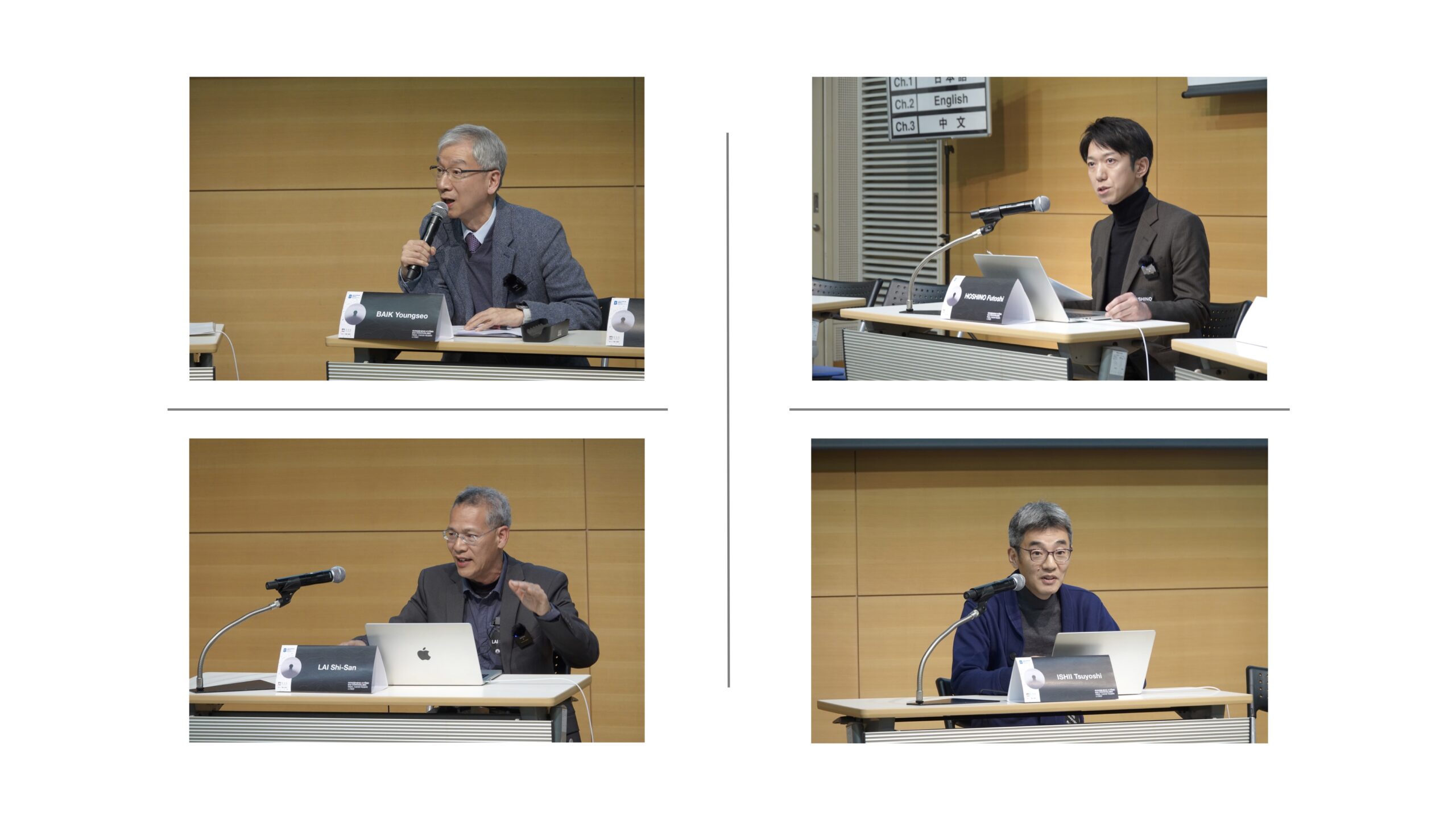
Above, from left: Prof. BAIK Youngseo, Prof. HOSHINO Futoshi
Below, from left: Prof. LAI Shi-San, Prof. ISHII Tsuyoshi
On the second day, Saturday, March 30th, at 9:00 a.m., Prof. Markus Gabriel from the University of Bonn took the stage as the third keynote speaker. He delivered a speech on “Human Co-Becoming, Anthropological Diversity, and the Dawn of a New Enlightenment.”
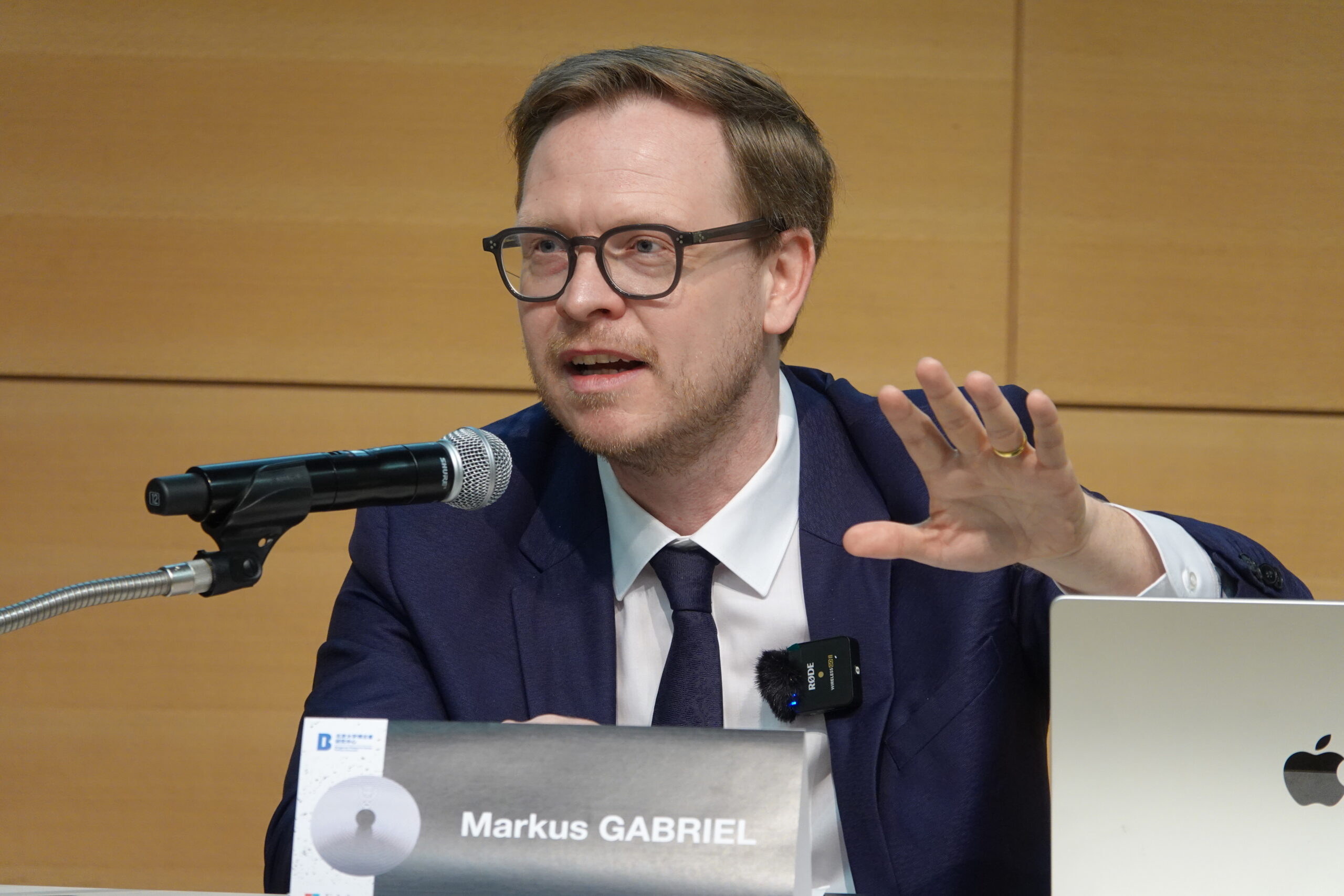 Prof. Markus GABRIEL
Prof. Markus GABRIEL
Following this, we welcomed the final panel discussion titled “Gongsheng/Kyōsei and Convivialism: A Philosophy Shared by Mankind in the Planetary Era?” moderated by Ms. TIAN Xinyuan from the Berggruen China Center. Prof. Roger AMES from Peking University began by presenting “The Confucian Values of Relational Equity and Achieved Diversity: From Convivialism to Conviviality.” Next, Prof. Mark McCONAGHY from National Sun Yat-sen University delivered his presentation on “Chinese Neo-Traditionalism and the Question of Co-Becoming in the 21st Century: From Capital to the Unselfish Heart.” Dr. ZHAN Yiwen from Beijing Normal University presented “Reality in Co-Becoming: On the Metaphysics of Interperspectivality,” followed by a presentation from Prof. REN Xiao from Fudan University on “The Gongsheng Theory of International Relations.”
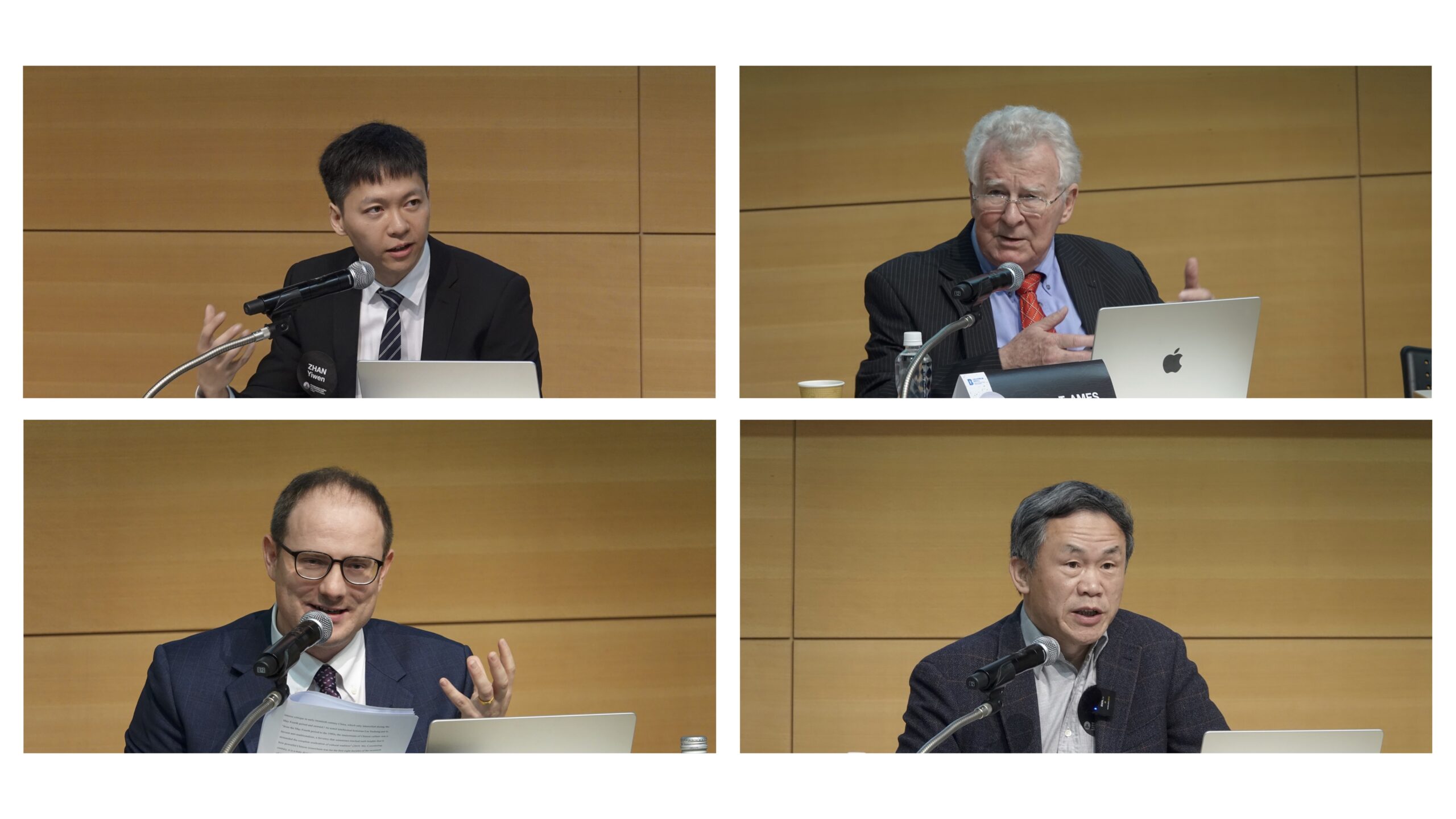 Above, from left: Dr. ZHAN Yiwen, Prof. Roger AMES
Above, from left: Dr. ZHAN Yiwen, Prof. Roger AMES
Below, from left: Prof. Mark McCONAGHY, Prof. REN Xiao
In the afternoon, we began our final presentation session, titled “Past to Future: Reflecting and Envisioning Together.” Prof. KOBAYASHI Yasuo, Professor Emeritus from the University of Tokyo, delivered a speech on “One Singular Moment over the North-Pole Area: My Hope for Philosophia, Like a Very Far Star.” In the speech, he pinpointed the possibility of a discussion that does not take the concept of symbiosis as self-evident and raised a critical review of the entire issue regarding how to think anew in an age where science and technology have become overwhelming.
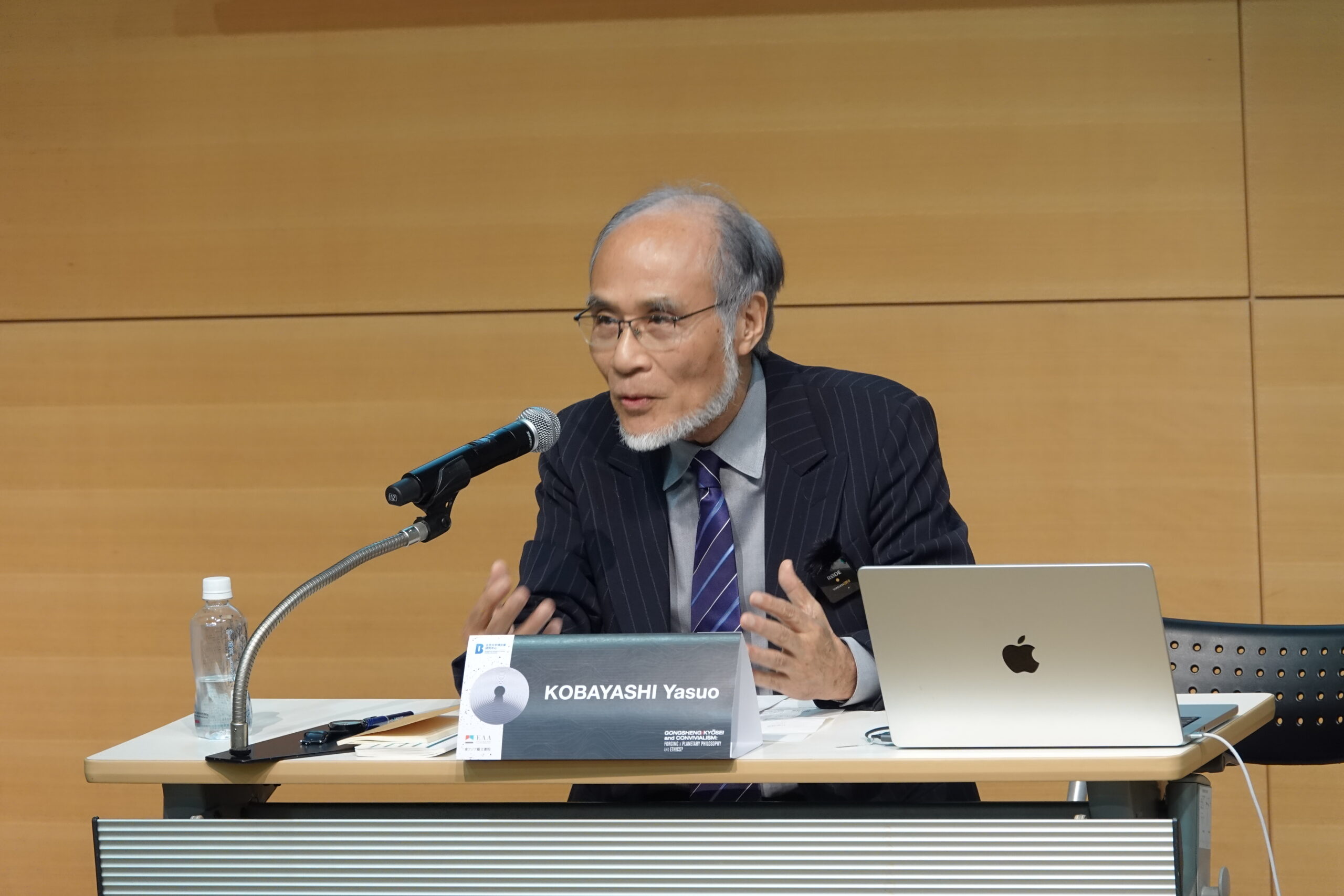 Prof. KOBAYASHI Yasuo
Prof. KOBAYASHI Yasuo
Finally, the symposium transitioned into a general discussion, guided by Prof. ISHII Tsuyoshi, where all speakers participated. The session concluded with a closing speech by Mr. Nicolas BERGGRUEN, Director of the Berggruen Institute.
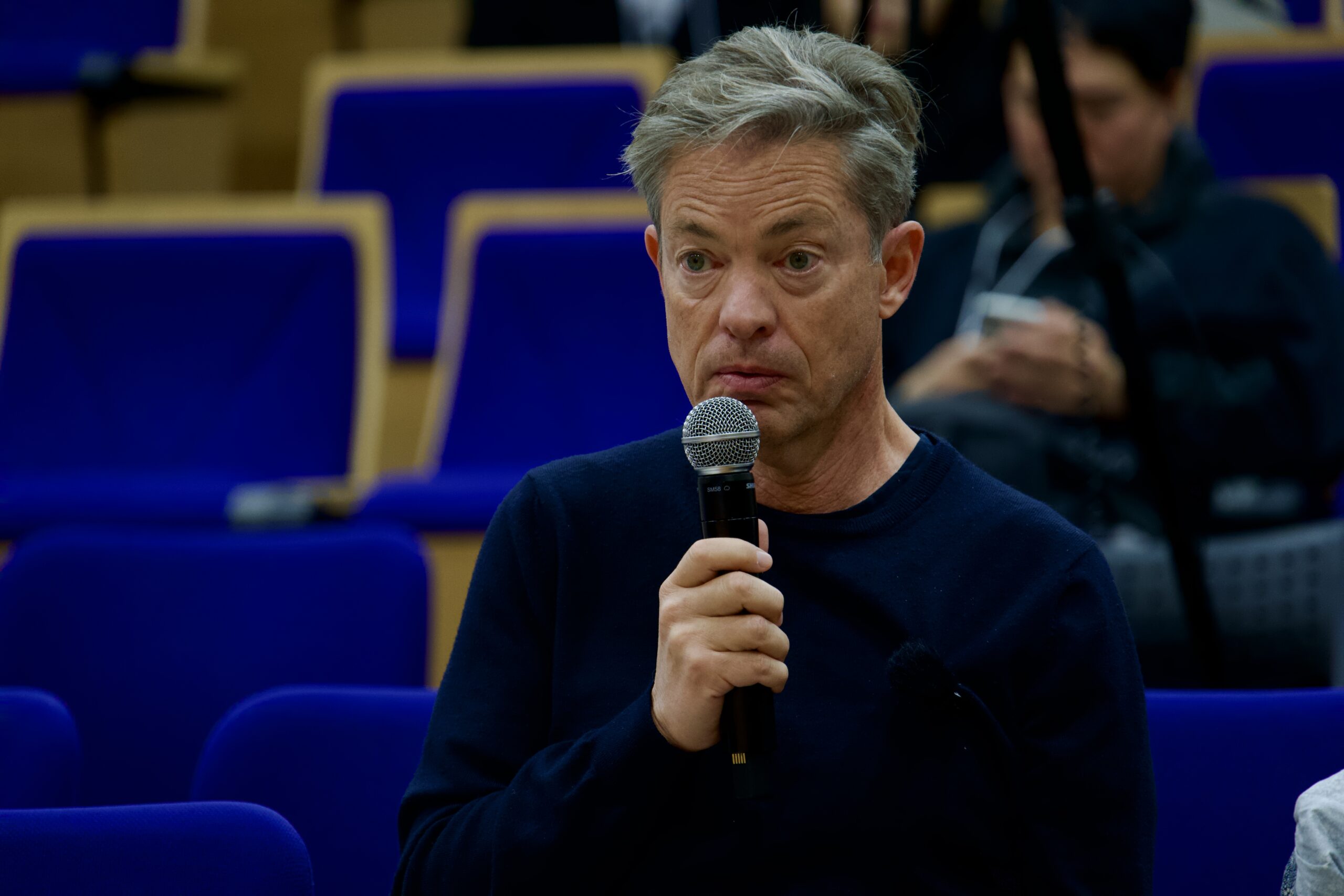 Mr. Nicolas BERGGRUEN
Mr. Nicolas BERGGRUEN
Summarizing the intensity of the two days of discussions is challenging, but what is certain is that this gathering marked the inception of a new network that is sure to grow. Heartfelt gratitude is extended to the staff of the Berggruen China Center, the EAA team, and the interpreters for their tremendous efforts in realizing this event.
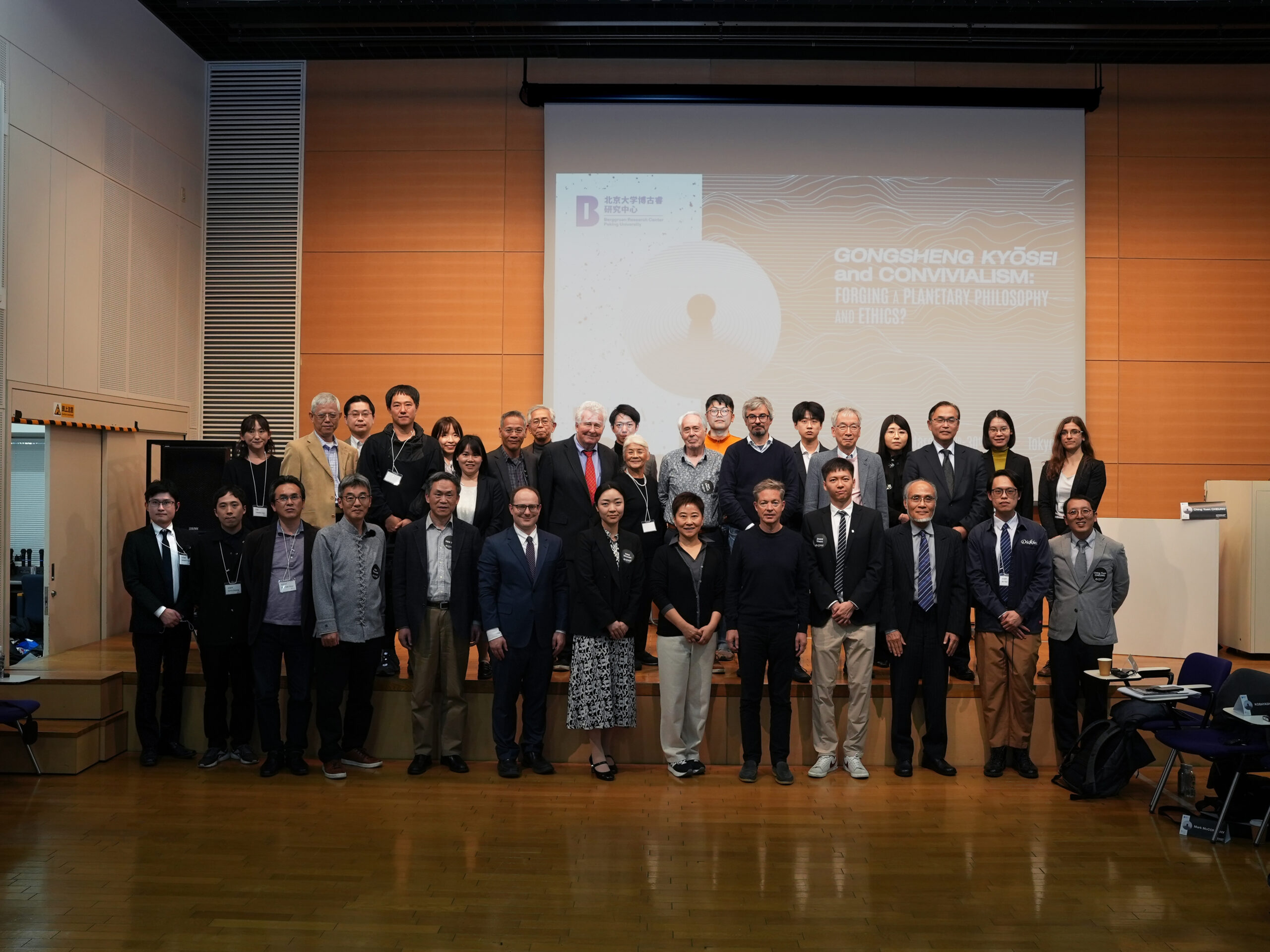
Reported by Hanako Takayama (EAA Project Assistant Professor), Chiyang Guo (EAA Project Research Fellow)
Photographed by Ayako Mino (Academic Specialist, University of Tokyo), Viktoriya Nikolova (EAA Research Assistant), Ziwei Lin (EAA Research Assistant), Yuta Yokoyama (EAA Research Assistant), Xi Chen (EAA Project Research Fellow)
*The affiliations and titles of the aforementioned staff are as of the time of the event.
Translated by Cheng-Ting Chang (EAA Project Research Fellow)









